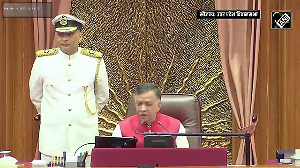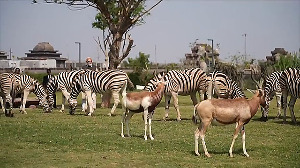The India-Asean Free Trade Agreement has hit a roadblock with the agriculture ministry objecting to the inclusion of farm products like pepper, rubber, palm oil, coffee and tea in the tariff liberalisation programme.
The issue is all set to go to Prime Minister's Trade and Economic Relations Committee and subsequently to the Cabinet for a final decision in the face of the ministry's opposition.
The ministry wants these commodities to be included in the sensitive list under the FTA, while ASEAN members, some of whom are single product exporting countries, want India to have zero tariffs on them, official sources told PTI.
FTAs work on the principle of 'all trade', meaning that at least 80 per cent of the trade of a country should be covered under the agreement.
In this case, if these commodities are kept in the sensitive list, then single product exporting countries like Malaysia (which exports mainly palm oil) will not meet the criterion of all trade as also the argument being put forth by ASEAN, which wants these items out of India's sensitive list.
As per the agriculture ministry, these commodities form a part of its list of Special Products in the World Trade Organisation and have sensitivities involved. So under any FTA, it cannot agree to have zero tariff on them.
In some of the commodities like pepper and palm oil, their rising imports from Sri Lanka under the Indo-Sri Lanka FTA has impacted this sector, which mainly consists of small growers and manufacturers.
New Delhi has already compromised on the Rules of Origin with ASEAN, where it was agreed to have 35 per cent value addition and change in tariff sub-heading level, even as rules in other such agreements like Thailand it was at change in tariff heading -- considered more stringent. ROO govern origin of products from a country.
India, which had proposed a negative list of 1,414 items has pruned it to about 900, which is being currently discussed at the senior officials meeting in Kuala Lumpur.
In fact, ASEAN which has till now not given any list was also expected to give their sensitive list at the Kuala Lumpur meeting.
Implementation of ASEAN FTA has already been delayed by over a year, with both sides dropping the Early Harvest Programme. The new date for implementation of the FTA is January 1, 2007.






 © 2025
© 2025